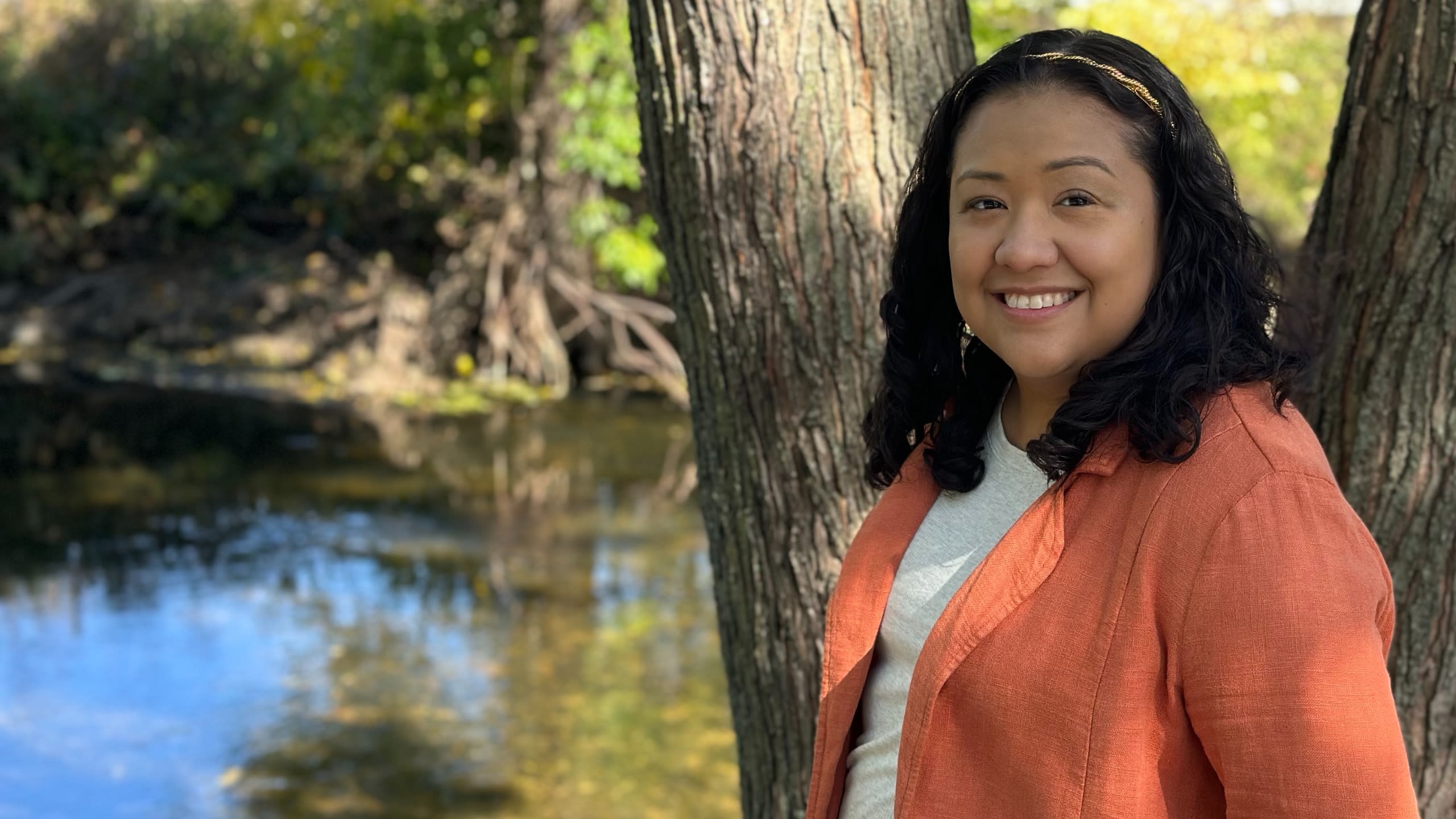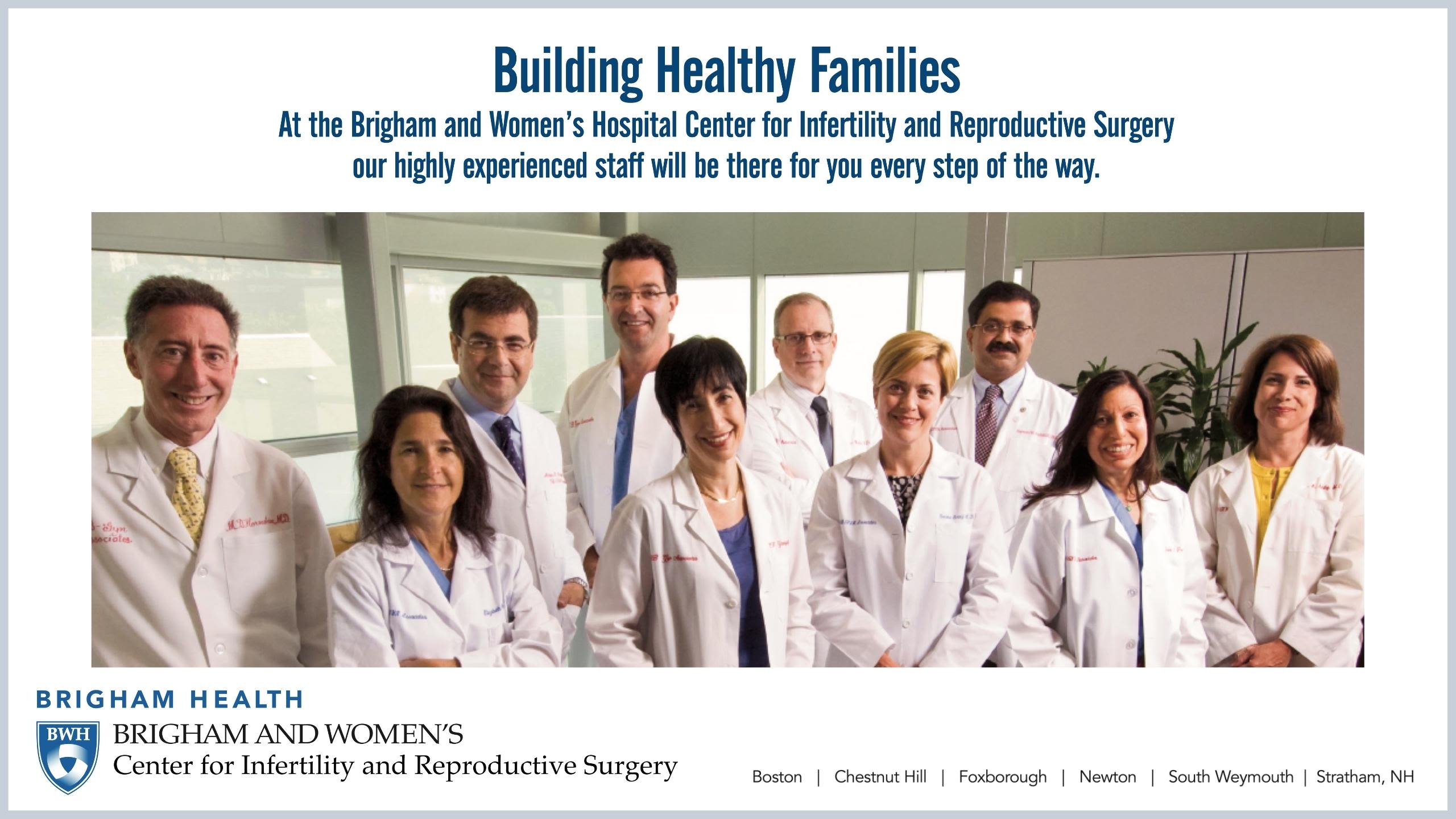Mental Health Matters
Tips for coping with fertility and family building challenges

Many people facing challenges in growing their family also experience mental health difficulties as a result.
Numerous studies have shown that people who are struggling with fertility and family building challenges have higher rates of depression and anxiety than the general population.
In fact, women diagnosed with infertility have been found to have similar levels of depression to those who have received a cancer diagnosis.
So how do you determine if mental health support would be helpful to you on your family building journey?
- You’re having trouble sleeping or you're waking up in the middle of the night with anxiety or panic.
- You’re feeling stuck, such as in the process of adoption, fertility treatment cycles, or about what family building options to explore next.
- You need to grieve a loss such as an unsuccessful IVF cycle, pregnancy loss, not being able to have a biological child, or being childless not by choice.
If you’re struggling, I strongly recommend seeking out therapy for support.
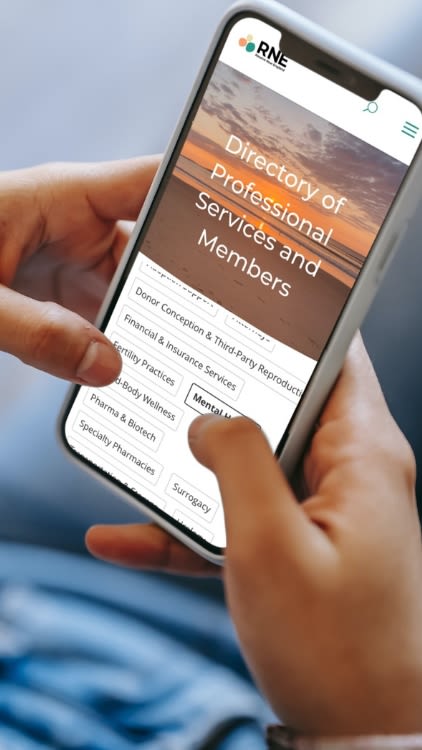
Need help finding a mental health provider who supports people experiencing fertility and family building challenges? Visit the RNE Professional Directory!
However, if you’re in transition to see a therapist (i.e. still looking or on a waitlist) and need mental health support in the meantime, I’ve gathered some things that you can try on your own.

Need help finding a mental health provider who supports people experiencing fertility and family building challenges? Visit the RNE Professional Directory!
Need help finding a mental health provider who supports people experiencing fertility and family building challenges? Visit the RNE Professional Directory!
Take Care of Yourself

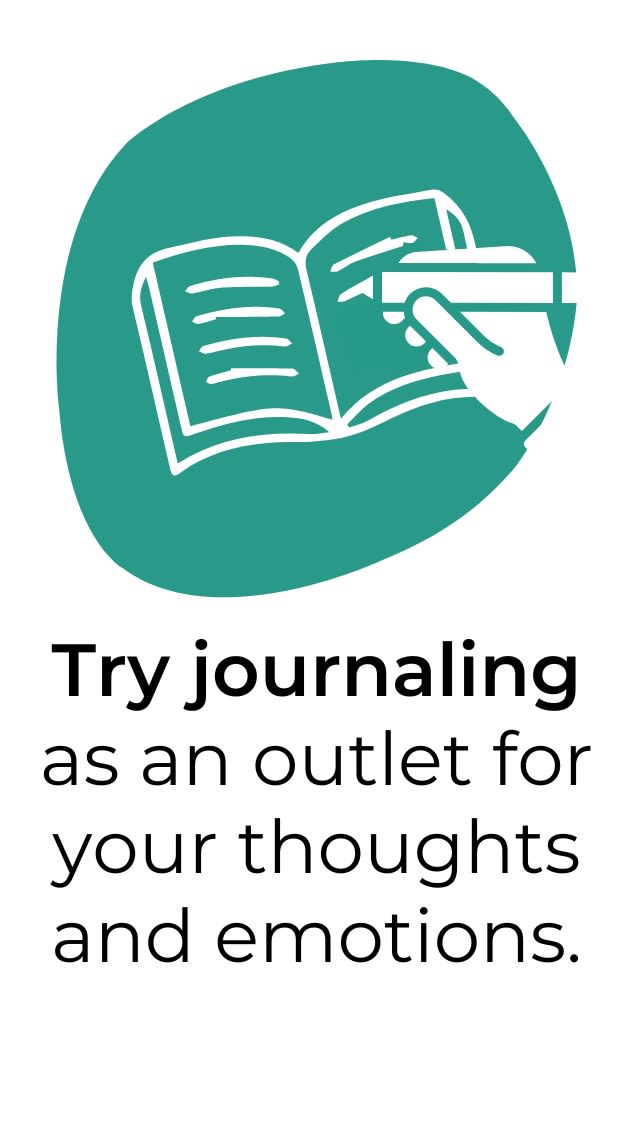
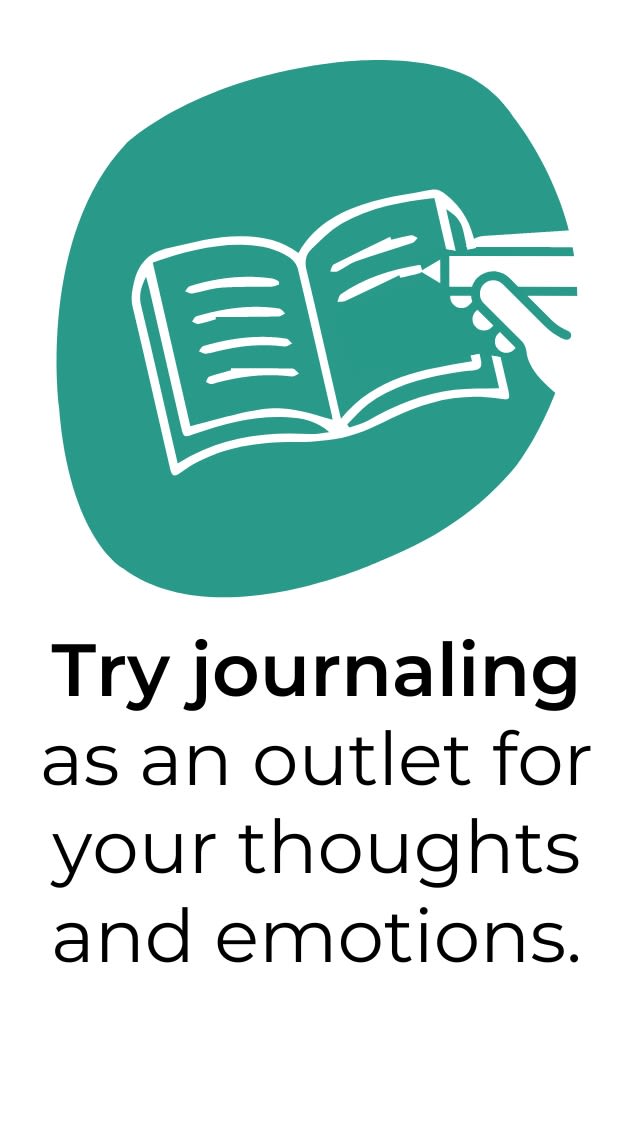
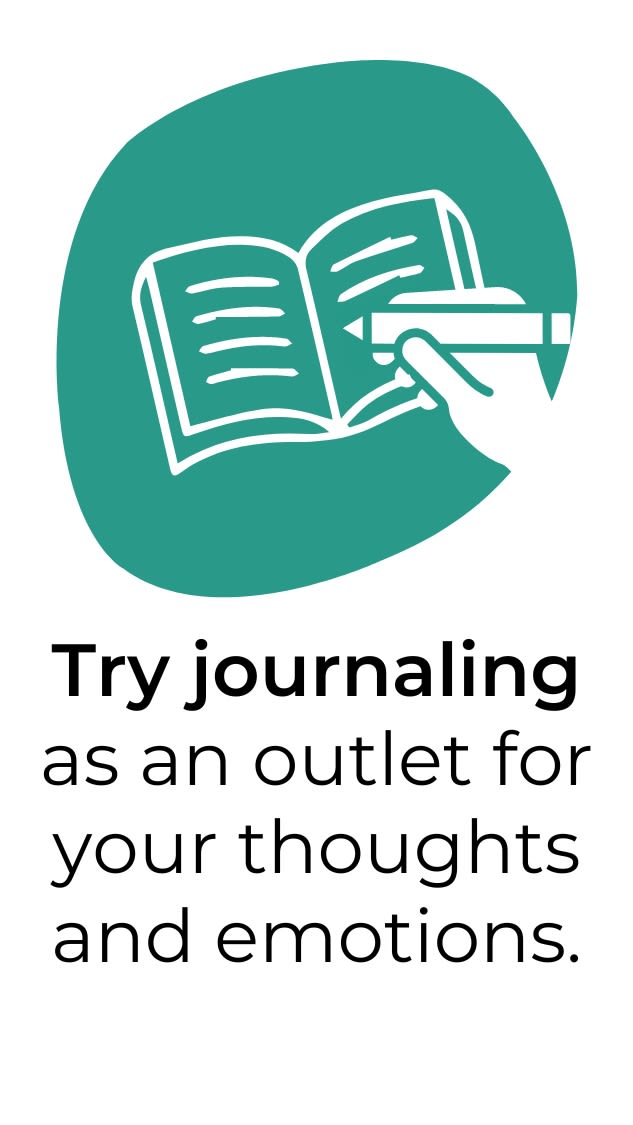
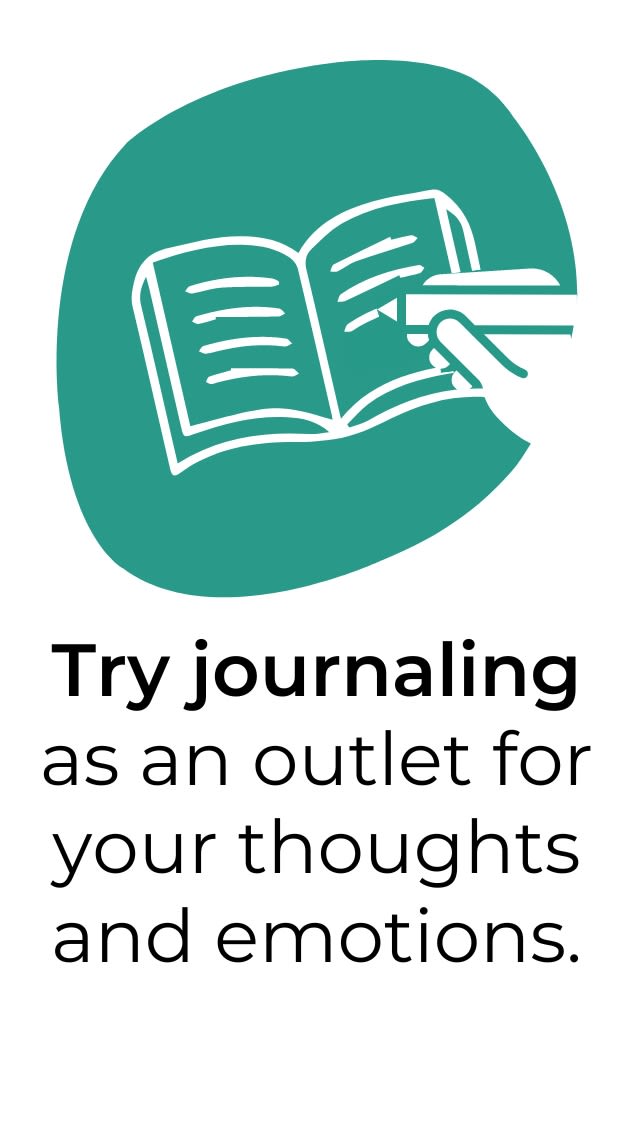
Free-Form Journaling
Writing without specific prompts, such as what you’re thinking and feeling that day or process heavy feelings of loss and grief
Gratitude Journaling
Writing what you’re grateful for, even when it's hard to find something
Brain Dump Journaling
Getting all your thoughts and feelings out onto paper, especially before bed








Deep Breathing
If you’re someone who likes traditional “deep breathing” try:
4-7-8 breathing
- inhale for 4
- hold for 7
- exhaling for 8
or 4-4-6 breathing
- inhale for 4
- holding for 4
- exhale for 6
Exhale-Only
If you are someone who doesn’t like deep breathing, I recommend trying exhale-only breathing.
This is essentially deep exhaling or sighing without the deep inhaling and holding part.
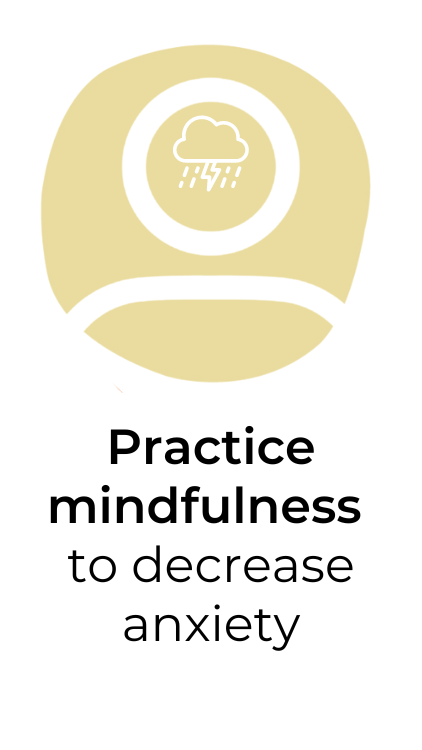
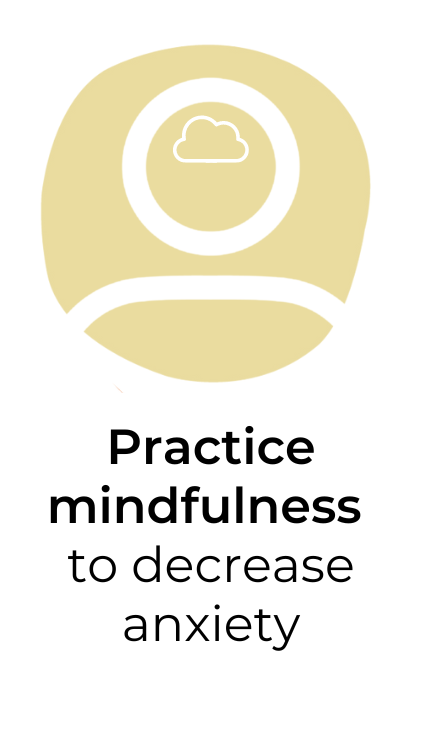
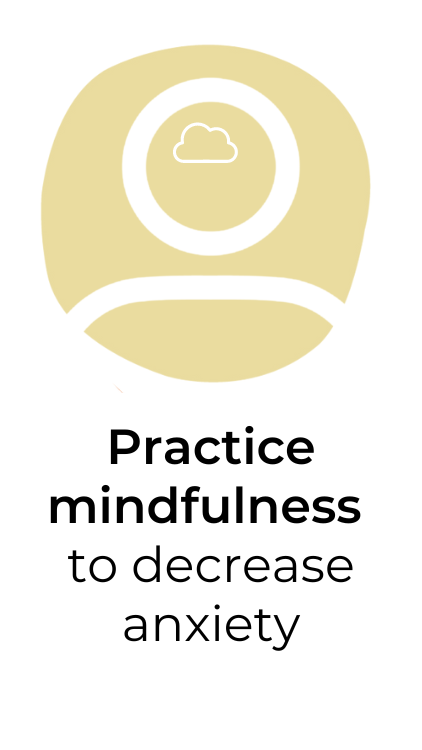
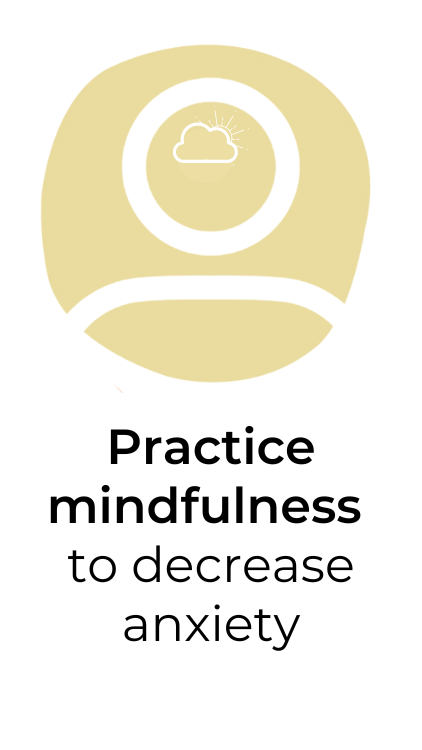
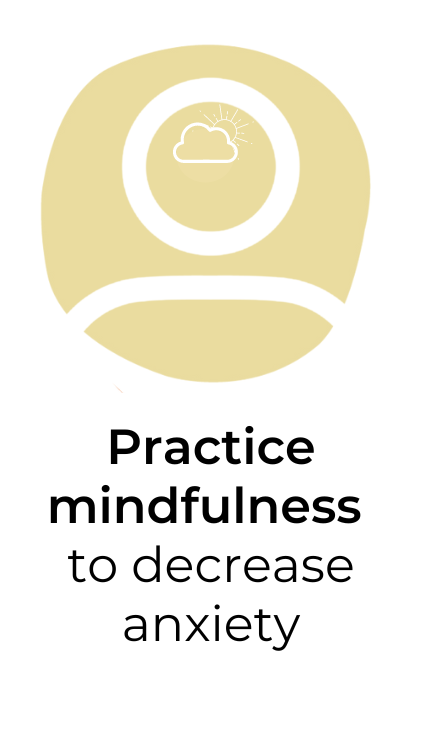
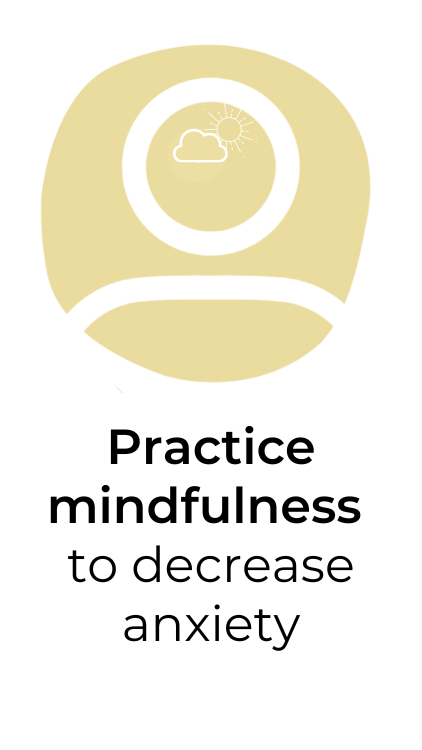
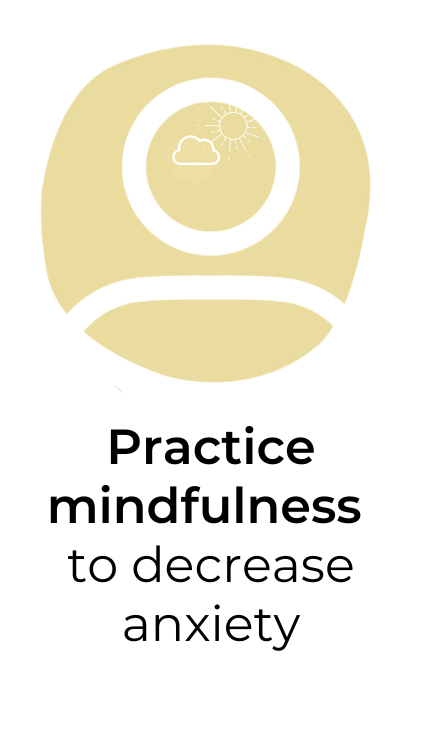
Ask yourself, what do I know to be true right now?
It works because you are re-focusing your attention on the present moment, as opposed to worrying about the past or future.
Grounding strategies are a form of healthy distraction. They help you to detach from emotional pain and elevated anxiety or panic. Some grounding strategies to try include:
- Taking a pause and listing 5 things you can see, 4 things you can touch, 3 things you can hear, 2 things you can smell, and 1 thing you can taste
- Describing your environment in great detail using all your senses (observing objects or furniture in the room, textures, sounds, colors, etc.)
- Running cold or warm water over your hands (whatever feels good to you)
- Planning a treat for yourself after a hard day, such as a warm bath or shower, a special coffee, or a dinner to look forward to in the evening
Need a bit more guidance?
Join our monthly Mindfulness during Family Building sessions!
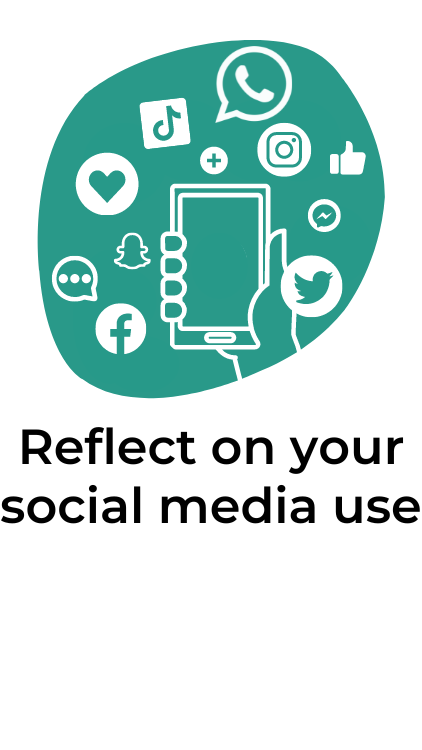
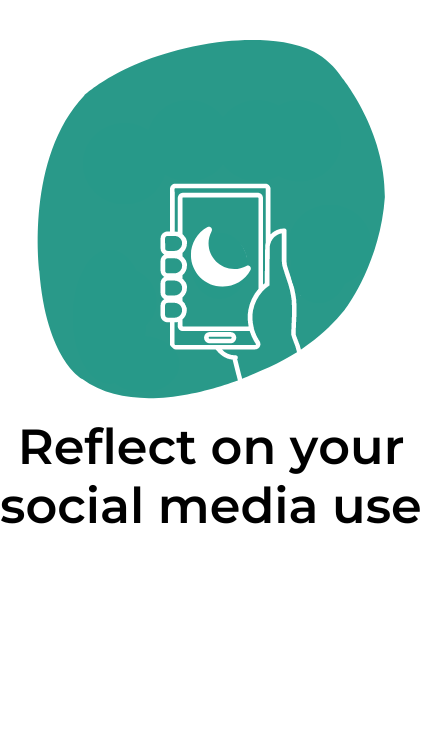
You may find that social media platforms are triggering when you're experiencing family building challenges.
If you’re struggling with making comparisons to others you’re connected to on social media, consider making changes to your social media use, such as:
- Limiting your time spent on social media
- Muting or unfollowing some accounts
- Creating a new account that's only for family building content
- Taking a break entirely
Take Care of Your Relationships



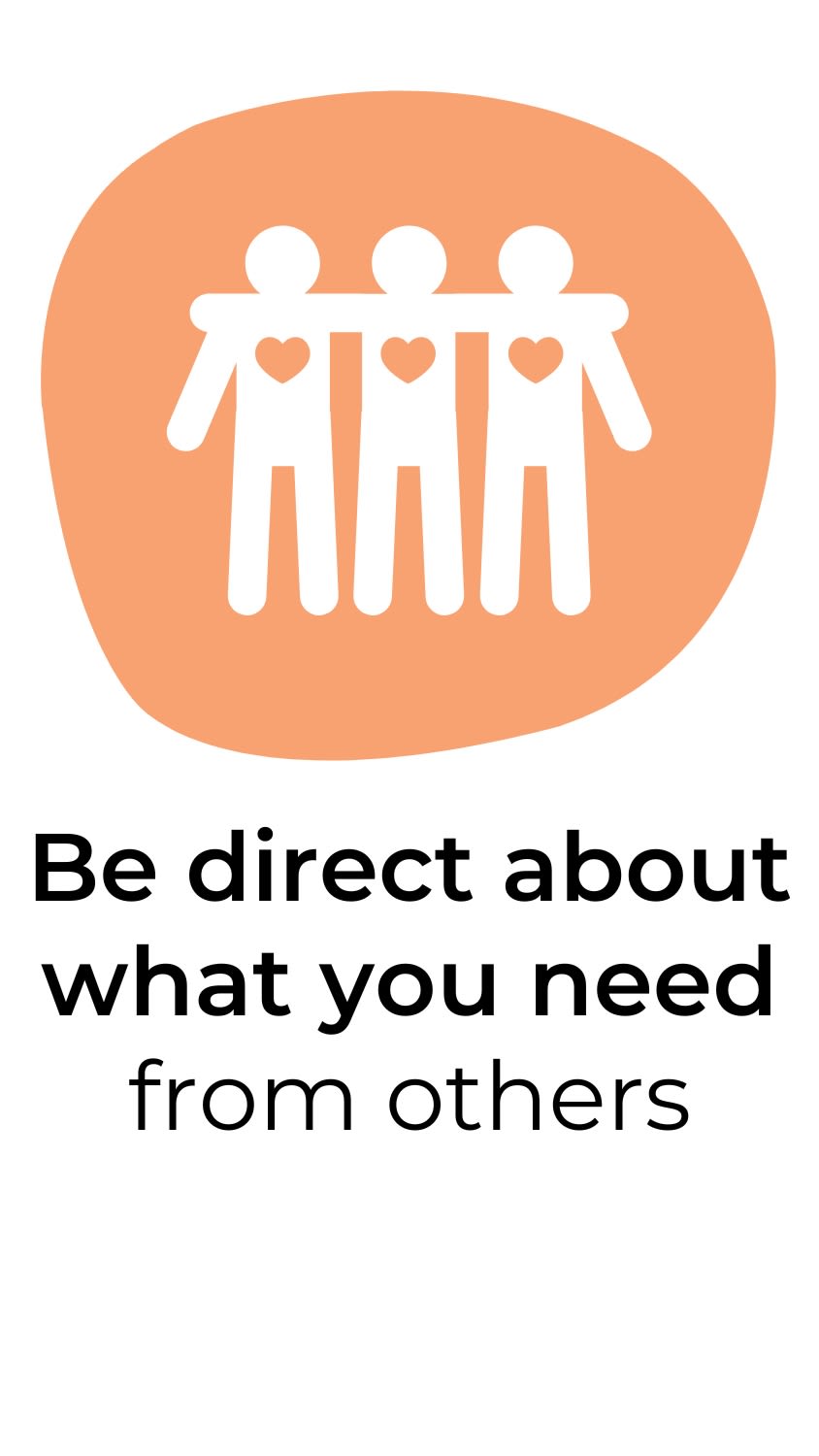
You’re allowed to tell your partner, friends, and family how you’re feeling and what you need from them to help you get through this tough time.
In fact, your loved ones may appreciate knowing concrete ways they can make you feel supported and loved.
Maybe you need some healthy distraction in the form of watching a movie or ordering takeout with your partner or friends.
Or maybe you want to “vent” about everything going on to your best friend now but then don’t want to talk about it again for a while.
Let the people who care about you know how they can best take care of you, even if it changes from day to day.
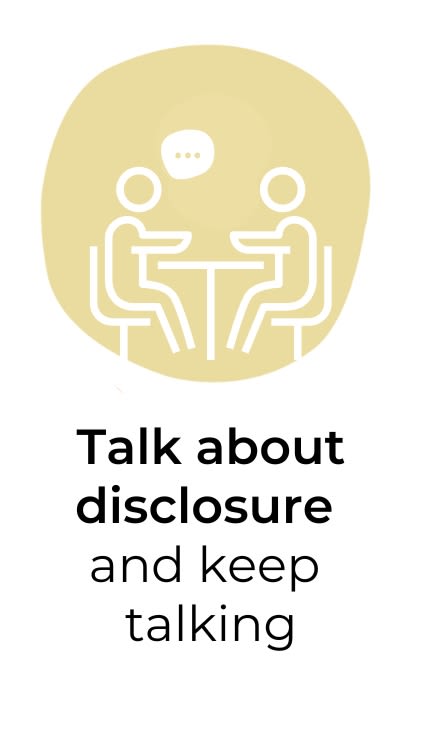
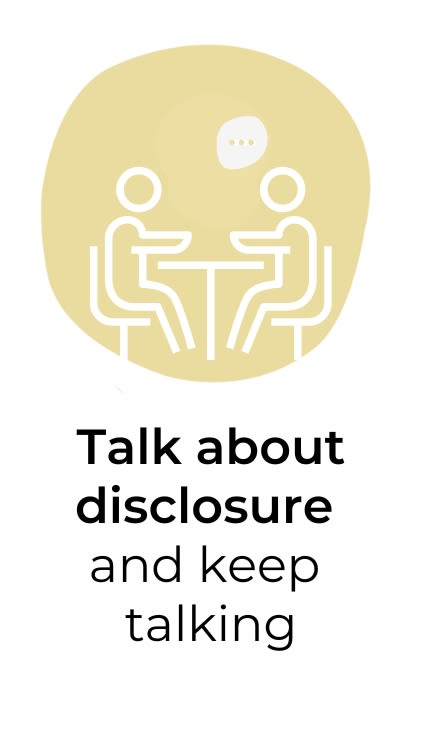
Discuss with your partner what you are comfortable and uncomfortable disclosing to your family and friends ahead of time, whether that be about a diagnosis, fertility treatment you are going through/have gone through, challenges in family building you are facing, and/or the loss you experienced.
Decide together how you want to respond to questions or comments from family and friends.
This will help keep you and your partner on the same page when you receive questions or potentially triggering comments from well-meaning friends and family.
It is not uncommon to have differing opinions about what you are comfortable sharing with your social circle; it may take a while for you and your partner to talk through and negotiate how much to disclose to others.
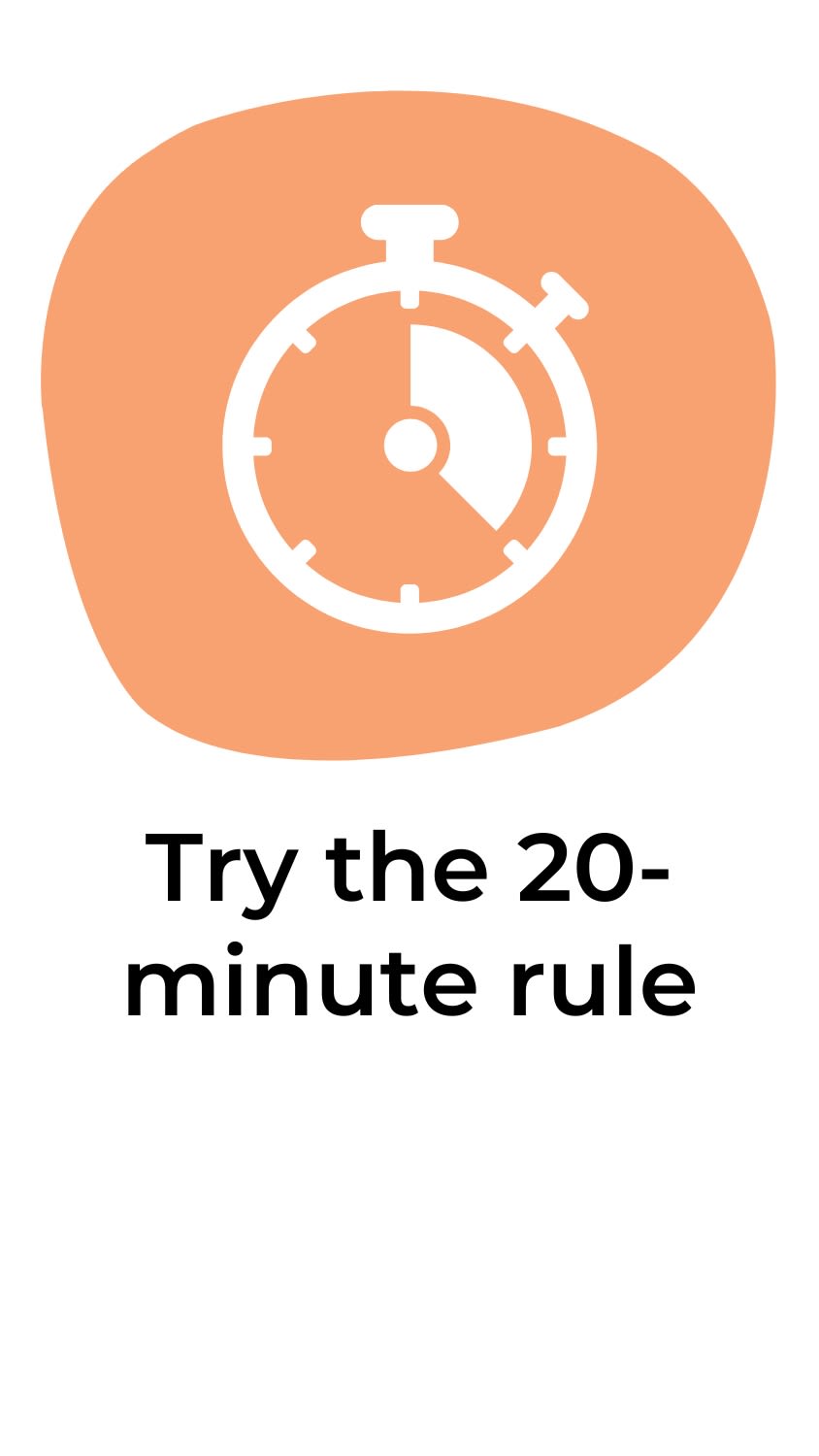
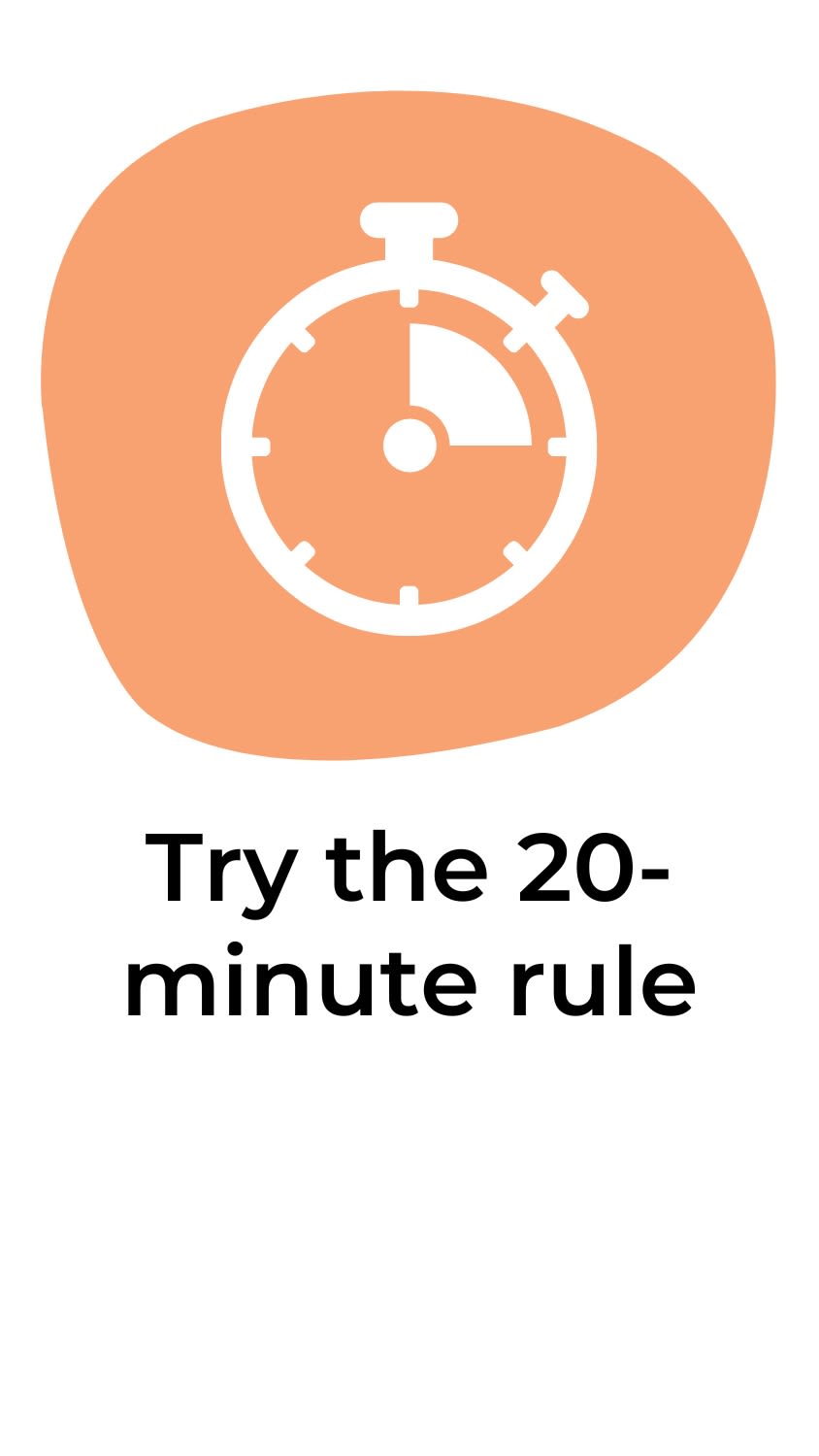
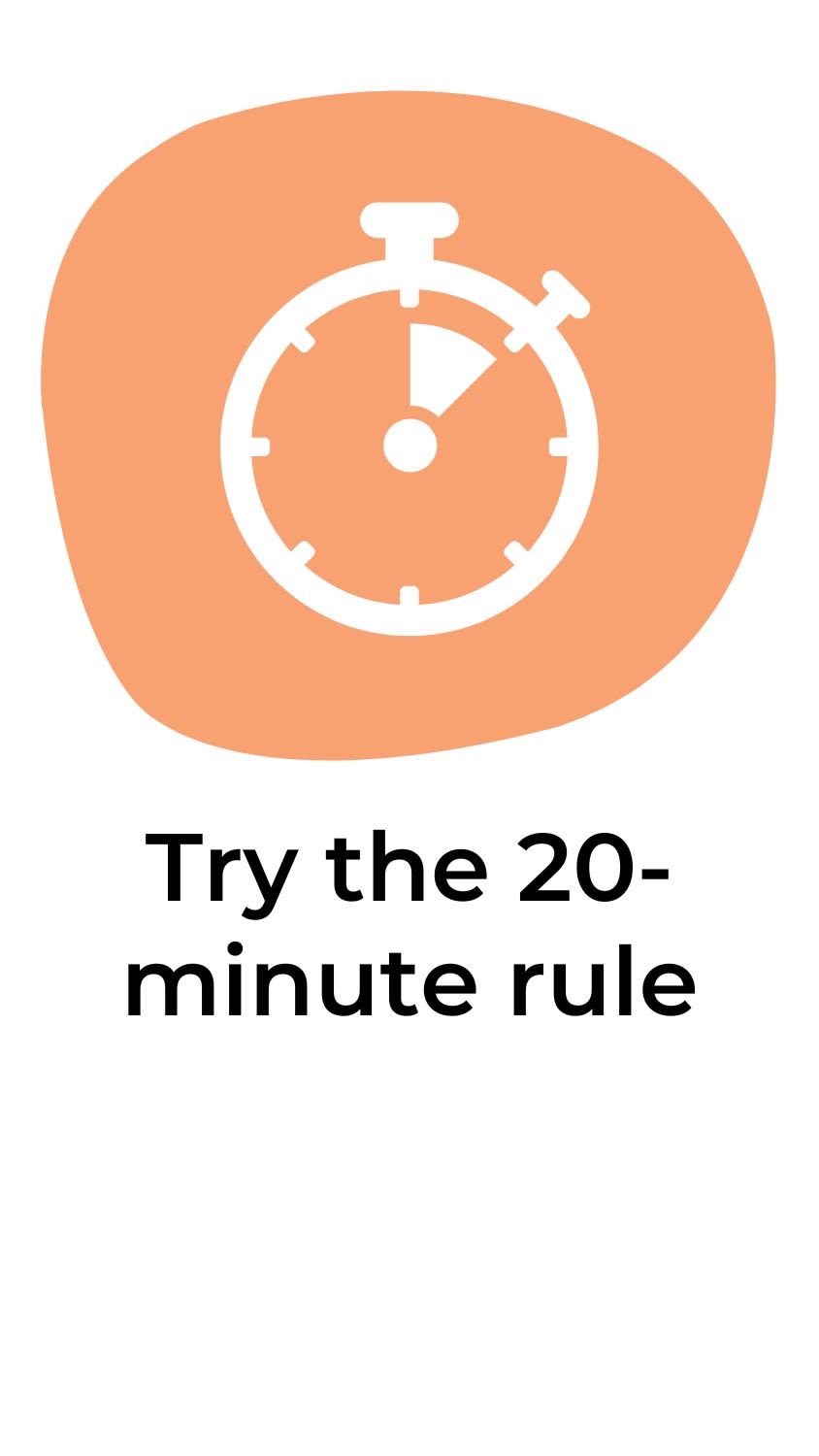
If you’re struggling with feeling as though all you and your partner talk about is your family building journey and you want to keep it from taking over every conversation you have, you may find the 20-minute rule helpful.
The 20-minute rule means you spend 20 minutes per day talking about the next steps for your home study, IVF meds, or potential donor profiles, but then once that time is up you're free to move on.
(The time limit can also be adjusted to what you think is appropriate.)
The 20-minute rule may also feel helpful if you feel as though you and your partner tend to avoid emotional discussions but need to block off a time to devote to talking about your family building journey.
This same strategy can be helpful managing conversations with friends and family members who may be eager to talk about what's going on in your journey without leaving you feeling like you can't talk about anything else.
For example, if you hang out with a friend, maybe you want to give them a 5 minute update and then spend the rest of the time enjoying each other’s company and talking about other parts of your lives.
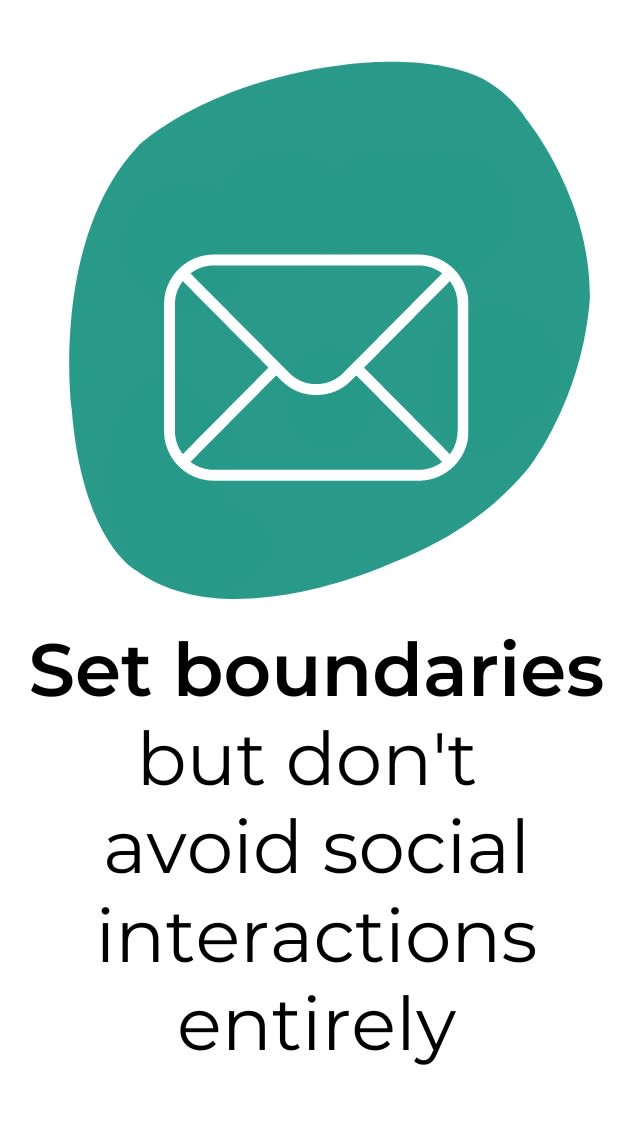
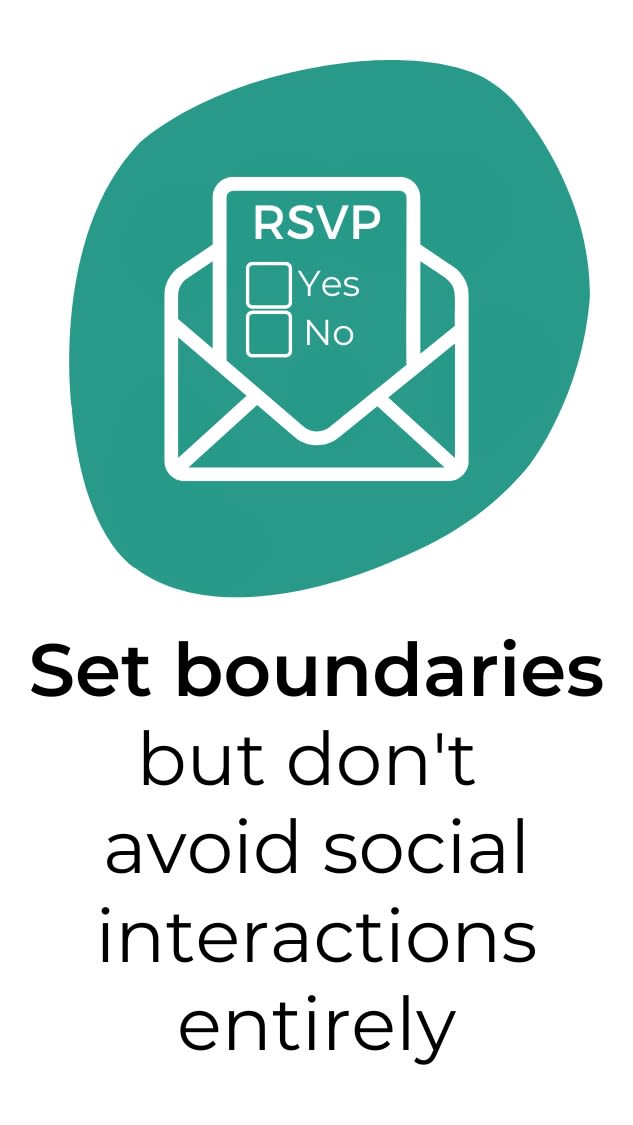
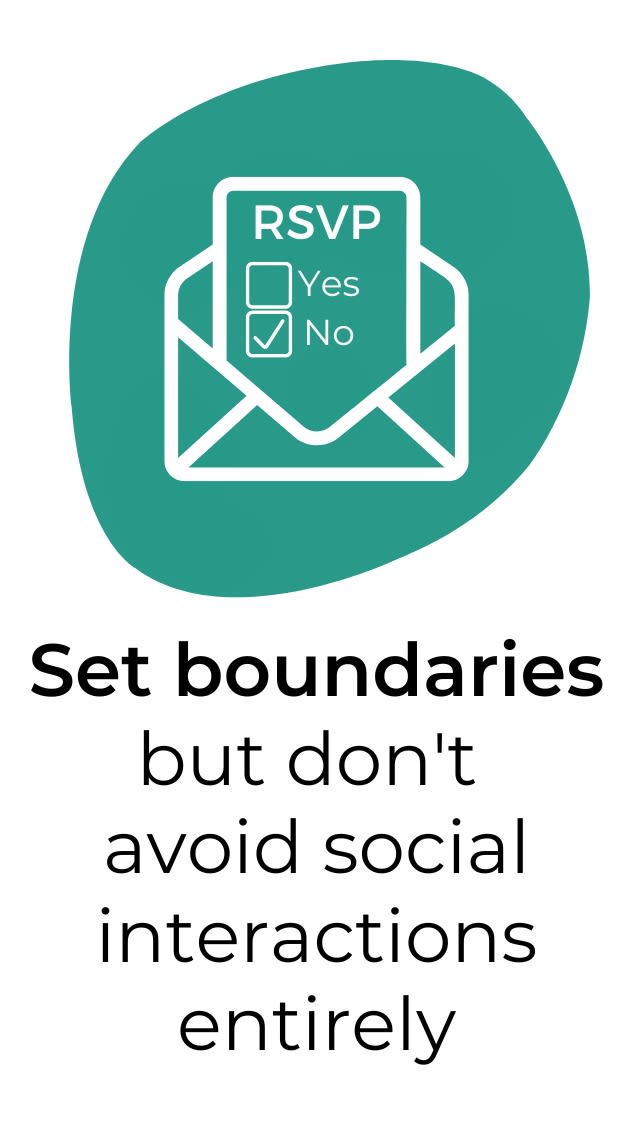
Identify what your limits are with your partner, family, friends, or coworkers, and set boundaries accordingly.
Maybe you are choosing to skip a family member’s child’s 1st birthday party in order to preserve your own mental health since you have been trying so hard to build your family and currently feel hopeless about the prospect of becoming a parent.
In this case, perhaps you set the boundary that you will not be attending the birthday party and choose to send a gift instead.
However, maybe you choose to go to your best friend’s baby shower because you want to support her, she has been supportive of you, and you are genuinely excited for her.
In this case, you might let your friend know you will be attending, but that it may be hard for you to stay the whole time. Maybe you leave early or take a short break part of the way through the event.
Or maybe you get involved in having a certain “job” at the baby shower because it gives you something to focus on and allows you to be present for your best friend’s celebration.
You Are Not Alone

I hope the strategies I shared can bring you some relief and hope during this difficult time.
And please remember that you don't have to navigate fertility and family building challenges alone.
Find an experienced mental health professional or try connecting with others who are facing similar struggles at a peer support group.
Wherever your family building journey takes you, your mental health matters.
Katie Aguayo Zweifel is a therapist in private practice specializing in infertility and family building challenges, perinatal loss, and perinatal anxiety and depression. Katie draws from her specialized training, professional experience, and lived experience in her work.
Katie is a professional member of the following organizations: Resolve New England, the American Society for Reproductive Medicine (ASRM) and the ASRM Mental Health Professional Group (MHPG), and Postpartum Support International (PSI).
Katie has received specialized postgraduate training from the American Society for Reproductive Medicine (ASRM) in infertility and fertility treatment and Postpartum Support International
(PSI) in perinatal mental health.
Katie is in the process of completing a 10-month (30-hour) postgraduate course in fertility counseling to better support clients as they navigate
infertility/family building challenges, explore family building options, and grow their families.
Visit Katie’s website to learn more about her practice: www.katieaguayolicsw.com
